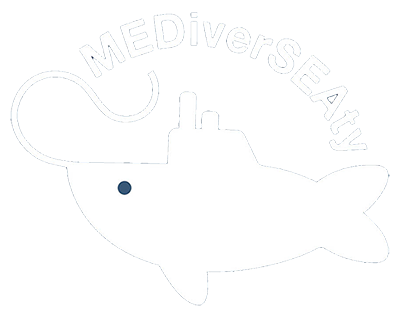The 10 selected PhD candidates who, in a medium term perspective, will form a community of early career researchers trained in the study of marine biodiversity, via joint research projects in both academic and non-academic settings, with local and network training, open science and complementary skills.
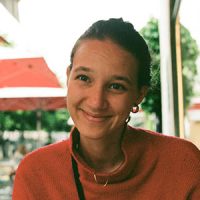
Aloïs Aguettant
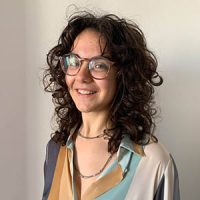
TBA21 (Spain)
Ludovica Montecchio
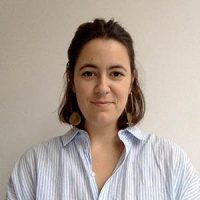
Victoria Campón
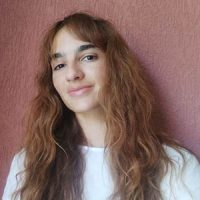
Carlotta La Penna
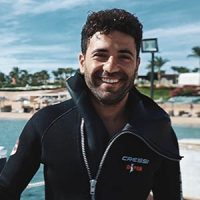
Vincenzo de Cancellis
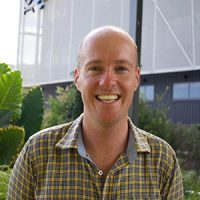
Justin Whittle
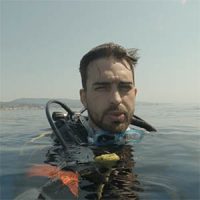
Gabriel Rivas Mena
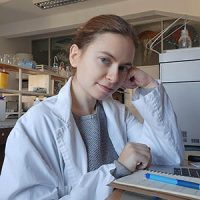
Antonija Avdalović
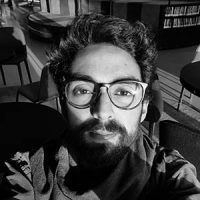
Gabriel Araujo Njaim
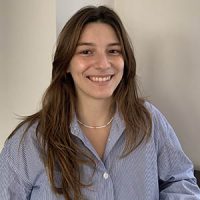
Ines Vincent

University of Milano-Bicocca (Italy)
Aloïs Aguettant
Aloïs Aguettant is a political scientist, holder of a Bachelor’s in political science and international relations from SOAS, University of London and of the Interdisciplinary Master in International Affairs from the Geneva Graduate Institute, where she specialised in environmental governance and in gender studies. She has worked in Marine Protected Areas and in international biodiversity advocacy, and her previous research touches upon masculinities in small-scale fisheries in the Mediterranean. Her research ties together notions of gender equality, intersectionality, sustainability and climate change and interrogates human-environmental relations in the field of marine biodiversity conservation and human uses of the maritime space. She is based at the University of Milano-Bicocca.
PhD program:
Marine Sciences and Technologies and Management
Supervisors:
Marcella Schmidt di Friedberg (University of Milano Bicocca)
Maria Cristina Mangano (University of Milano Bicocca)
Research project:
Managing the protection of marine biodiversity through ecosystems services approaches: implication on marine and coastal tourism. A gender perspective

University of Milano-Bicocca (Italy)
TBA21 (Spain)
Ludovica Montecchio
Ludovica Montecchio is an environmental humanist interested in blue humanities, environmental anthropology, and contemporary art. She has held various internships, including at TBA21–Academy, EqualSea Lab, and IOC-UNESCO, where she engaged in ocean literacy projects and citizen science initiatives. Her engagement with TBA21’s ocean comm/uni/ty and Ocean-Archive.org, including projects like “Lagoon Letters” and studies on deep-sea mining, deepened her holistic approach to ocean literacy. She also created and produced a podcast for Ca’ Foscari University of Venice titled “C’è di mezzo il mare” and designed graphics for multiple environmental art projects. Ludovica holds an MA in Environmental Humanities earned at Ca’ Foscari University of Venice and a BA in Languages, Literatures, and Cultural Mediation earned at the University of Padua.
PhD program:
Cultural and Social Anthropology
Supervisors:
Stefano Malatesta (University of Milano Bicocca)
Pedro Pombo (University of Malta)
Michal Kucerak (TBA21)
Research project:
Ocean-Archive.org: A Digital Organism for a Living Ocean

École des hautes études en sciences sociales (France)
Victoria Campón
I am a PhD student at the Institut Jean Nicod (ENS – PSL), where my research focusses on the complex interplay between scientific evidence, policy, and the social dimensions of fisheries. Previously, I worked as a Fisheries Scientist at CEFAS (United Kingdom), where I gained extensive knowledge in fisheries and fisheries management. With a background in fisheries science and biodiversity conservation, I am passionate about understanding how human behaviour and environmental factors shape resource management. My previous experiences and interests allow me to bring a multidisciplinary approach to my research, integrating ecological, social, and policy perspectives to develop innovative solutions for sustainable fisheries.
PhD program:
Law, Political Studies, and Philosophy
Supervisor:
Roberto Casati (CNRS/EHESS)
Léna Fréjaville (Bloom)
Research project:
Representation of Biodiversity in Coastal and non-coastal populations

École des hautes études en sciences sociales (France)
Carlotta La Penna
I am Carlotta La Penna and I am a PhD candidate in Law, Political Studies, Philosophy at the EHESS in Paris. I obtained a Bachelor’s Degree in Philosophy and a Master’s Degree in Philosophical sciences at the University of Florence, with a master’s thesis on “Theory and praxis of conservation biology: a philosophical perspective”. During my master’s, I spent a period abroad as an Erasmus student at the Université Paris 1 Panthéon-Sorbonne, where I had the opportunity to explore the different branches of philosophy of science. My research interests focus on the philosophy of biology, environmental aesthetics and biodiversity studies.
PhD program:
Law, Political Studies, and Philosophy
Supervisor:
Roberto Casati (CNRS/EHESS)
Giorgos Kokkoris (University of the Aegean)
Research project:
A broadly operationalizable notion of biodiversity

University of Malta
Vincenzo de Cancellis
I am Vincenzo, an Italian PhD student at the the Islands and Small States Institute of the University of Malta, enrolled in the MEDiverSEAty doctoral program– “In Quest of the Human Dimensions of Mediterranean Marine Biodiversity”.
My research primarily focuses on marine conservation and its coexistence with anthropogenic activities, specifically how protected areas can enhance local population well-being and foster climate change adaptations.
I graduated from Alma Mater Studiorum – University of Bologna with a Master in Global Change Ecology and Sustainable Development Goals. My final thesis investigated the potential of sustainable fishery techniques as a tool to concurrently reduce elasmobranch bycatch mortality while promoting rural development in artisanal fishing communities in Guanacaste, Costa Rica.
In parallel with my studies, I assisted Triton Research in developing and managing European marine conservation projects, including LIFE Conceptu maris, Pinna, A-Mar 2000.
Among my past experiences, I worked as a marine biologist and environmental educator in Marsa Alam, Egypt, in collaboration with the Marine & Freshwater Science Group Association. In this role, I conducted educational programs designed to influence tourists’ attitudes and behaviors toward the marine environment.
I am deeply passionate about the ocean and intend to dedicate my life to its protection.
When I’m not swimming, snorkeling, or diving, I enjoy traveling, hiking, and reading.
PhD program:
Islands and Small States Studies
Supervisor:
Stefano Moncada (University of Malta)
Stefano Malatesta (University of Milano Bicocca)
Research project:
Marine and terrestrial protected areas to foster climate change adaptation: a sustainable livelihoods approach

University of Malta
Justin Whittle
Justin Whittle is a distinguished professional with expertise in nature-based solutions, international sustainable development, and environmental conservation who is currently pursuing a PhD in Malta on Marine Biodiversity. Coming from Australia, Justin has always held a strong desire to protect oceans and landscapes. He holds a Master of Science from the Netherlands and Germany, and a Bachelor of Sciences from Thailand and Australia. From his international education and experiences, he brings a multidisciplinary approach to addressing global environmental challenges.
Justin’s career spans impactful roles, including working with the United Nations FAO in Rome and with numerous research institutes around the world spanning from Mexico, Kenya, China, Japan, Myanmar, Australia etc. His expertise lies at the intersection of ecological research, sustainable practices, and international development, with a deep commitment to fostering resilient ecosystems.
Justin’s work embodies a vision for a harmonious balance between human development/ nature and the climate nexus. Through his PhD research on marine biodiversity, he is dedicated to protecting and understanding ocean ecosystems, contributing to a sustainable future for both the planet and its people.
PhD program:
Islands and Small States Studies
Supervisor:
Marie Briguglio (University of Malta)
Alan Deidun (University of Malta)
Research project:
Economics and citizen science: Insights for ecosystem restoration in marine and terrestrial protected areas

University Crne Gore (Montenegro)
Gabriel Rivas Mena
I was born in Sevilla, Spain. After graduating from my bachelor’s degree in Biology at the University of Sevilla, I conducted my master’s studies in the Erasmus Mundus programme in Marine Biological Resources (IMBRSea) where I learned about marine ecology, experimental design and marine conservation. During the last two years, I had the opportunity to travel to seven different European countries where I learned a wide knowledge of the marine environment.
I have previous experience working with Deep-Sea Ecosystems, Benthic Habitats and Marine Restoration. Currently, I am based at the Institute of Marine Biology at the University of Montenegro in Kotor where I pursue my PhD in the topic “Using artificial reef to preserve biodiversity: potential implications on Marine Literacy and Education” at the Institute of Marine Biology”.
If you don’t find me in the lab, you can find me diving, out in nature, on a basketball court or relaxing with a good coffee.
Supervisor:
Vesna Mačić (University Crne Gore)
Ana Ruiz-Frau (Consejo Superior de Investigaciones Científicas)
Research project:
Using artificial reef to preserve biodiversity: potential implications on Marine Literacy and Education.

University Crne Gore (Montenegro)
Antonija Avdalović
Antonija Avdalović is a PhD researcher at the Institute for Marine Biology in Kotor, Montenegro, as part of the MEDiverSEAty doctoral program, funded by the Marie Skłodowska-Curie Actions. Her research focuses on the impacts of microplastic pollution in marine ecosystems, with an emphasis on the Mediterranean Sea. Antonija holds a Master’s degree in Zoology from the University of Belgrade, where her thesis on the effects of temperature on Triturus newt larvae earned her the award for Best Master’s Thesis. During her studies, she was actively involved in the student field group Bid Josif Pančić, contributing to projects in hydrobiology and herpetology. She also served as Editor-in-Chief of the student magazine Simbioza, where she fostered her passion for science communication and the popularization of science.
Committed to bridging the gap between science and society, Antonija combines her expertise in marine biology with a talent for storytelling to inspire awareness and action on environmental challenges. Beyond research, she is deeply invested in engaging the public with the wonders of the natural world, emphasizing the importance of sustainability and conservation.
Supervisor:
Milica Mandić (University Crne Gore)
Pedro Pombo (University of Malta)
Research project:
Socio-economic impacts of sea-surface microplastic concentrations along the coastal shelf of Montenegro

Consejo Superior de Investigaciones Científicas (Spain)
Gabriel Araujo Njaim
Having my initial academic formation in Geography and my initial explorations in terrestrial environments, my first steps into marine environments can be said to be recent. These were driven by a personal curiosity about the somewhat mysterious spectrum of human-ocean relationships, from its material aspects to its symbolism. This curiosity has been further strengthened by my recently completed ISLANDS Erasmus Mundus Joint Masters Degree, which provided me with diverse training and the opportunity to conduct research in several Mediterranean islands and beyond.
Currently, I am based in Mallorca and working at the Mediterranean Institute of Advanced Studies – IMEDEA. Here, I continue to deepen my understanding of human-non-human relationships through a multiscalar and multitemporal lens of analysis. My research spans the intersections of geography, island studies, development pathways, migration movements, place attachment, identity studies, and psychology. It currently aims at investigating socio-ecological relationships by the seaside and beyond through a biocultural lens. Specifically, I focus on interpreting marine food elements in their connection to specific contexts of change over time—climate change, trade markets, fishing practices, and subjective revolutions—keeping ethical, intersectional, and progressive lenses always in use.
Supervisor:
Ana Ruiz-Frau (Consejo Superior de Investigaciones Científicas)
Hilmar Hinz (Consejo Superior de Investigaciones Científicas)
Research project:
Understanding the different dimensions of human-nature connectedness for conservation and restoration management in the Mediterranean

University of the Aegean (Greece)
Ines Vincent
I am a PhD student in the Department of Marine Sciences at the University of the Aegean, specializing in Integrated Coastal Zone Management (ICZM). My research focuses on mitigation of conflict in the era of global change and the role of local knowledge.
My academic journey began with a bi-disciplinary Bachelor’s degree in Mechanical Engineering and Environmental Sciences from Sorbonne University (Paris VI). I then pursued a Master’s in Environmental Change and Global Sustainability at the Università degli Studi di Milano.
As part of my master’s program, I completed an internship at UNESCO’s Regional Bureau for Science and Culture in Europe, based in Venice, Italy. During this time, I supported the Science Unit’s activities, particularly the “Promoting Sustainable Development through UNESCO’s Programs and Sites” project in Aberdeen. This initiative fosters sustainable development through research, education, and innovation in natural UNESCO sites.For my master’s thesis, I conducted a systematic review titled “Ecosystem Services and Drivers of Change in Mediterranean Coastal Lagoons.” This research assessed the ecosystem services and drivers of change identified in scientific literature, to propose a sustainable management framework tailored to the unique threats and characteristics of Mediterranean coastal lagoons.
Supervisor:University of Milano-Bicocca
Research project:
Integrated Coastal Zone Management: mitigation of conflict in the era of global change and the role of local knowledge
